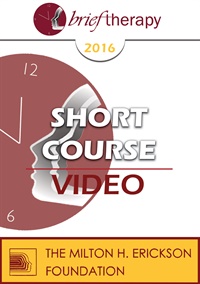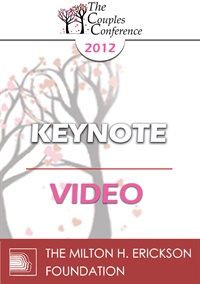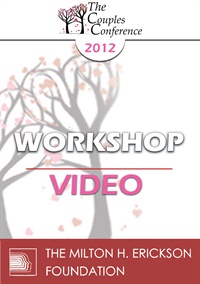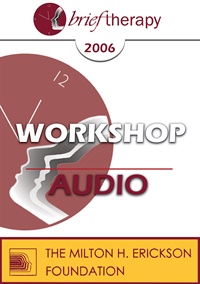
- Average Rating:
- Not yet rated
- Topic Areas:
- Workshops | Neurobiology | Brief Therapy | Neuroscience
- Categories:
- Brief Therapy Conference | Brief Therapy Conference 2006
- Faculty:
- Daniel Siegel, MD
- Duration:
- 2:38:28
- Format:
- Audio Only
- Original Program Date:
- Dec 07, 2006
- Short Description:
- This workshop will expand on the premise of the keynote by more deeply exploring a working definition of the mind and mental health. At the core of this approach is the role of neural integration in developing a flexible, adaptive, coherent, energized and stable state flow of the mind. This FACES state enables the clinician to feel the pulse of wellbeing as moving between the extremes of rigidity and chaos.
- Price:
- $15.00 - Base Price
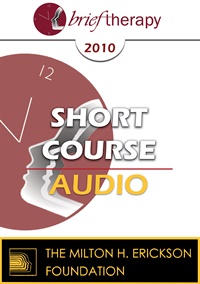
- Average Rating:
- Not yet rated
- Topic Areas:
- Neuroscience | Short Courses | Neurobiology | Brief Therapy | Mind-Body
- Categories:
- Brief Therapy Conference | Brief Therapy Conference 2010
- Faculty:
- Richard Hill, MBMSc, MEd, MA
- Duration:
- 1:30:17
- Format:
- Audio Only
- Original Program Date:
- Dec 09, 2010
- Short Description:
- Breakthroughs in neuroscience and neurophysiology explain how a mindset can alter what is turned on and turned off in the brain and the body. The work of Siegel, Rossi, Bandura, Aronson & Steele and Deci & Ryan act as pieces of a puzzle that explain why therapy can be disrupted by an imposed mindset and how this “winner/loser world” mindset is an unseen barrier to our more natural, creative, interpersonal process. A new, simple brief therapy is presented for lasting, transformational change.
- Price:
- $15.00 - Base Price
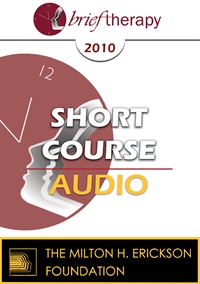
- Average Rating:
- Not yet rated
- Topic Areas:
- Couples Therapy | Short Courses | Gestalt | Intimacy | Relationships | Neurobiology | Neuroscience
- Categories:
- Brief Therapy Conference | Brief Therapy Conference 2010
- Faculty:
- Roberta Karant, PhD | Stefan Deutsch
- Duration:
- 1:33:35
- Format:
- Audio Only
- Original Program Date:
- Dec 09, 2010
- Short Description:
- Couples in distress minimize and numb their pain by avoiding contact. By writing a vision of what they both want, the therapist can focus the couple on the future. By combining Gestalt concepts with those popularized by Hendrix and others, therapists can have a powerful effect on quickening the healing process. New sessions will involve writing, note taking, and an agreed upon assignment to be practiced during the week. With Roberta Karant and Stefan Deutsch.
- Price:
- $15.00 - Base Price
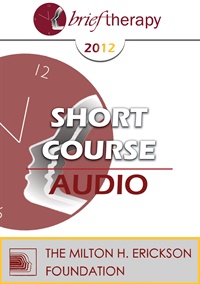
- Average Rating:
- Not yet rated
- Topic Areas:
- Short Courses | Neurobiology | Pain and Healing | Mind-Body
- Categories:
- Brief Therapy Conference | Brief Therapy Conference 2012
- Faculty:
- Anja Ferrari-Malik
- Duration:
- 1:23:38
- Format:
- Audio Only
- Original Program Date:
- Dec 05, 2012
- Short Description:
- BT12 Short Course 06 – Neuromuscular Awareness: A Mind-Body Method to Treat Patients with Chronic Pain – Anja Ferrari-Malik, MD Neuromuscular awareness is a method which focuses on the discovery and development of the skill to perceive one’s own internal bodily sensations and to act upon this awareness to reduce pain. The ability to recognize small bodily changes helps the client to create a new pathway in mind-body connection.
- Price:
- $15.00 - Base Price
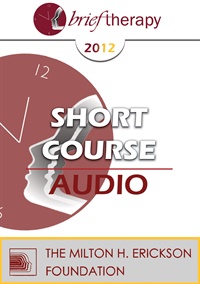
- Average Rating:
- Not yet rated
- Topic Areas:
- Anxiety | Depression | Short Courses | Communication | Neurobiology
- Categories:
- Brief Therapy Conference | Brief Therapy Conference 2012
- Faculty:
- Bart Walsh, MSW
- Duration:
- 1:55:20
- Format:
- Audio Only
- Original Program Date:
- Dec 09, 2012
- Short Description:
- BT12 Short Course 51 – Effective Management of Chronic Anxiety and Depression with Essential Neurobiological Communication – Bart Walsh, MSW Learn how to access deep levels of mind-body functioning for remission of chronic anxiety and depression. Essential neurobiological communication (ENBC) incorporates a form of body language known as ideomotor signaling. Affected individuals learn to fully manage these chronic conditions. Resolve past emotion using a noninvasive protocol integrating a progressive ratification sequence for grounding emotional adjustments in thought, perception and behavior.
- Price:
- $15.00 - Base Price
Tags: Anxiety Depression
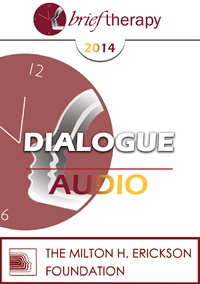
- Average Rating:
- Not yet rated
- Topic Areas:
- Dialogues | Neurobiology | Brief Therapy | Neuroscience
- Categories:
- Brief Therapy Conference | Brief Therapy Conference 2014
- Faculty:
- Pat Love, EdD | Ernest Rossi, PhD
- Duration:
- 56:18
- Format:
- Audio Only
- Original Program Date:
- Dec 13, 2014
- Short Description:
- BT14 Dialogue 04 - The Neurobiology of Change - Pat Love, EdD and Ernest Rossi, PhD Educational Objectives: Given a topic, describe the differing approaches to psychotherapy, and identify the strengths and weaknesses of each approach.
- Price:
- $15.00 - Base Price
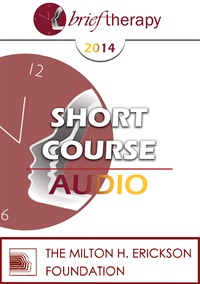
- Average Rating:
- Not yet rated
- Topic Areas:
- Anxiety | Depression | Short Courses | Communication | Neurobiology | Brief Therapy | Trauma
- Categories:
- Brief Therapy Conference | Brief Therapy Conference 2014
- Faculty:
- Bart Walsh, MSW
- Duration:
- 1:31:46
- Format:
- Audio Only
- Original Program Date:
- Dec 11, 2014
- Short Description:
- There are multiple explanations and theories to explain the creation of anxiety, depression and trauma creation. Many emphasize pathology, permanence of conditions and use multi-syllable words and encourage medical interventions to treat symptoms. This paradigm is often not effective for improving the lives of individuals treated. This course looks at non-medical underpinnings to conceptualize the creation of anxiety, depression and trauma. This conceptualization when understood by the clinician; makes them a better facilitator and co-creator in the treatment process. A natural, holistic understanding also empowers the clinician and client and moves all parties involved closer to health.
- Price:
- $15.00 - Base Price
- Average Rating:
- Not yet rated
- Topic Areas:
- Post-Traumatic Stress Disorder (PTSD) | Psychology | Short Courses | Energy Psychology | Brief Therapy | Neurobiology | Polyvagal Theory
- Categories:
- Brief Therapy Conference | Brief Therapy Conference 2016
- Faculty:
- Robert Schwarz, PsyD
- Course Levels:
- Master Degree or Higher in Health-Related Field
- Duration:
- 1:30:38
- Format:
- Audio and Video
- Original Program Date:
- Dec 08, 2016
- Short Description:
- Clinical experience and research has shown energy psychology (EP) to be a highly effective brief treatment of PTSD in contexts that range from war related PTSD in US veterans to the effects of genocide in Rwandan orphans. This workshop presents an elegant integration of Interpersonal neurobiology, polyvagal theory and memory reconsolidation that underlies energy psychology approaches to trauma treatment. Discover how to actually remove the traumatic energy/emotions from traumatic events that facilitates insight, mindfulness and posttraumatic growth.
- Price:
-
Sale is $29.00
price reduced from Base Price - $59.00
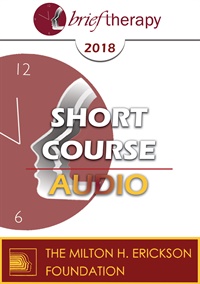
- Average Rating:
- Not yet rated
- Topic Areas:
- Short Courses | Anxiety | Communication | Depression | Neurobiology | Brief Therapy
- Categories:
- Brief Therapy Conference | Brief Therapy Conference 2018
- Faculty:
- Bart Walsh, MSW
- Duration:
- 1:29:10
- Format:
- Audio Only
- Original Program Date:
- Dec 06, 2018
- Short Description:
- Chronic anxiety and depression present significant challenges for those affected by these conditions. A behavioral treatment which accesses deep levels of mindbody functioning facilitates remission of these debilitating conditions. This treatment, conceptualized as essential neurobiological communication (ENBC), incorporates a form of body language known as ideomotor signaling. Because these are chronic conditions, the affected individual learns how to fully manage these states on their own. Also presented is a noninvasive, structured protocol for reducing the adverse influence of unresolved emotion on present experience. Essential to this model is a progressive ratification sequence intended to ground emotional adjustments in thought, perception and behavior. This brief procedure is a useful adjunct to other treatment modalities and instrumental
- Price:
- $15.00 - Base Price
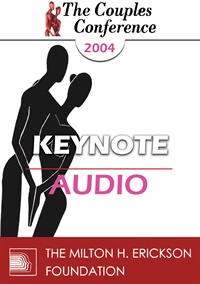
- Average Rating:
- Not yet rated
- Topic Areas:
- Keynotes | Couples Therapy | Neurobiology | Intimacy | Neuroscience | Attention Deficit Disorder (ADD)
- Categories:
- Couples Conference | Couples Conference 2004
- Faculty:
- Daniel Amen, MD
- Duration:
- 57:26
- Format:
- Audio Only
- Original Program Date:
- Mar 27, 2004
- Short Description:
- This keynote explores how brain function shapes intimacy, trust, and emotional connection in relationships. Participants learn how areas like the prefrontal cortex, temporal lobes, and limbic system influence empathy, impulse control, and attachment. The session offers a brain-based framework for understanding marital conflict, trauma, and communication struggles, showing how optimizing brain health can restore compassion, flexibility, and lasting partnership.
- Price:
- $15.00 - Base Price
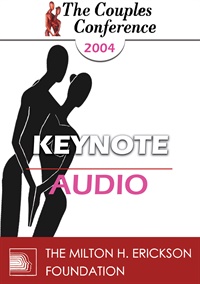
- Average Rating:
- Not yet rated
- Topic Areas:
- Keynotes | Couples Therapy | Neurobiology | Love | Neuroscience | Sex and Sexuality
- Categories:
- Couples Conference | Couples Conference 2004
- Faculty:
- Helen E. Fisher, PhD
- Duration:
- 1:03:38
- Format:
- Audio Only
- Original Program Date:
- Mar 28, 2004
- Short Description:
- Dr. Fisher will present an fMRI study of intense romantic love, a primary mating drive, and the impact of this brain circuitry on human sexuality, human marital stability and therapy using SSRI antidepressants.
- Price:
- $15.00 - Base Price
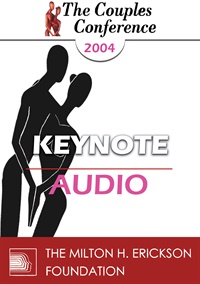
- Average Rating:
- Not yet rated
- Topic Areas:
- Keynotes | Couples Therapy | Neurobiology | Neuroscience | Therapist Development
- Categories:
- Couples Conference | Couples Conference 2004
- Faculty:
- Pat Love, EdD
- Duration:
- 58:32
- Format:
- Audio Only
- Original Program Date:
- Mar 28, 2004
- Short Description:
- During the past five years, the field of neuroscience has given us an overwhelming amount of information related to couples therapy. It is now up to us as clinicians to integrate this knowledge into our practice. Join the challenge, as we use these exciting new facts to help couples move from the relational log-jam to lasting change.
- Price:
- $15.00 - Base Price
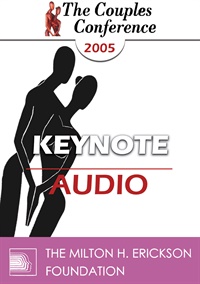
- Average Rating:
- Not yet rated
- Topic Areas:
- Keynotes | Couples Therapy | Neurobiology | Love | Addiction | Depression
- Categories:
- Couples Conference | Couples Conference 2005
- Faculty:
- Helen E. Fisher, PhD
- Duration:
- 1:02:24
- Format:
- Audio Only
- Original Program Date:
- Mar 05, 2005
- Short Description:
- Anthropologist Helen Fisher discusses the brain networks associated with romantic love to explain frustration, attraction, abandonment, rage, the despair response, love, addiction, stalking, love, suicide, and other phenomena associated with romantic rejection. She concludes that long term use of serotonin-enhancing antidepressants can jeopardize romantic love and attachment to a mate.
- Price:
- $15.00 - Base Price
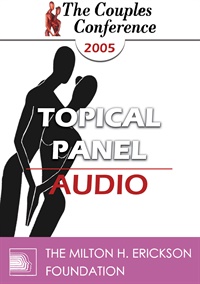
- Average Rating:
- Not yet rated
- Topic Areas:
- Topical Panels | Couples Therapy | Neurobiology | Love
- Categories:
- Couples Conference | Couples Conference 2005
- Faculty:
- Helen E. Fisher, PhD | Pat Love, EdD
- Duration:
- 55:21
- Format:
- Audio Only
- Original Program Date:
- Mar 05, 2005
- Short Description:
- CC05 Panel 01 - Anatomy and Physiology of Love - Helen Fisher, PhD and Pat Love, Ed.D.
- Price:
- $15.00 - Base Price
Tags: Couples Therapy Love
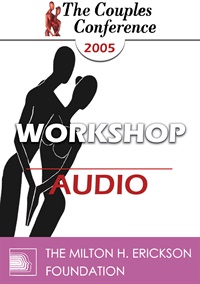
- Average Rating:
- Not yet rated
- Topic Areas:
- Workshops | Couples Therapy | Neurobiology | Relationships | Neuroscience | Intimacy
- Categories:
- Couples Conference | Couples Conference 2005
- Faculty:
- Pat Love, EdD
- Duration:
- 1:40:11
- Format:
- Audio Only
- Original Program Date:
- Mar 04, 2005
- Short Description:
- The new brain science explains many of the mysteries of love and offers new hopes for troubled relationships. Neuro-scientific approaches are used to address the most common reason cited for divorce, i.e. growing apart. Three clinical techniques will be presented which are specifically designed to create an intimate bond between two people and pave the way to grow together instead of apart. Lecture, video, handouts and experiential exercises will be used.
- Price:
- $15.00 - Base Price
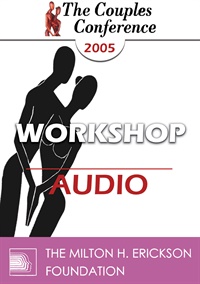
- Average Rating:
- Not yet rated
- Topic Areas:
- Workshops | Couples Therapy | Neurobiology | Love | Neuroscience
- Categories:
- Couples Conference | Couples Conference 2005
- Faculty:
- Helen E. Fisher, PhD
- Duration:
- 1:38:06
- Format:
- Audio Only
- Original Program Date:
- Mar 05, 2005
- Short Description:
- Anthropologist Helen Fisher discusses the brain networks associated with romantic love to explain frustration attraction, abandonment, rage, the despair response, love, addiction, stalking, love, suicide and other phenomena associated with romantic rejection. She concludes that long term use of serotonin-enhancing antidepressants can jeopardize romantic love and attachment to a mate.
- Price:
- $15.00 - Base Price
Tags: Couples Therapy Love Neuroscience
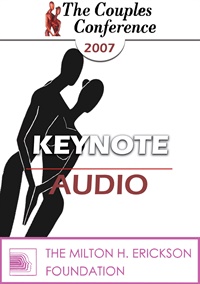
- Average Rating:
- Not yet rated
- Topic Areas:
- Keynotes | Couples Therapy | Mindfulness | Neurobiology | Relationships
- Categories:
- Couples Conference | Couples Conference 2007
- Faculty:
- Daniel Siegel, MD
- Duration:
- 57:41
- Format:
- Audio Only
- Original Program Date:
- Apr 28, 2007
- Short Description:
- This keynote address will offer an overview of the neural basis of mindful awareness and how this important way of being present and receptive to one's own inner processes creates enhanced capacity for emotional resonance and empathy.
- Price:
- $15.00 - Base Price
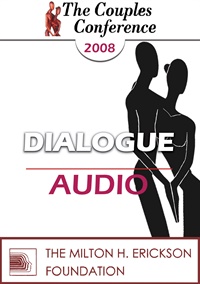
- Average Rating:
- Not yet rated
- Topic Areas:
- Dialogues | Couples Therapy | Neuroscience | Neurobiology
- Categories:
- Couples Conference | Couples Conference 2008 | Pioneers in Couples and Family Therapy
- Faculty:
- Louis Cozolino, PhD | Peter Pearson, PhD | Stan Tatkin, PsyD, MFT
- Duration:
- 57:12
- Format:
- Audio Only
- Original Program Date:
- Apr 27, 2008
- Short Description:
- This panel explores how neuroscience informs couples therapy, including emotional reactivity, stress, and attachment. Presenters discuss using analogies to help clients understand their brain responses and emphasize blending neuroscience with empathy and connection in clinical practice.
- Price:
- $15.00 - Base Price
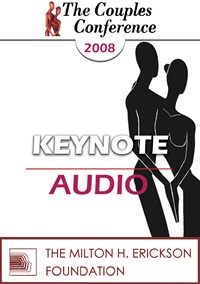
- Average Rating:
- Not yet rated
- Topic Areas:
- Keynotes | Couples Therapy | Trauma | Eye Movement Desensitization and Reprocessing (EMDR) | Hypnosis | Neurobiology
- Categories:
- Couples Conference | Couples Conference 2008
- Faculty:
- Bessel van der Kolk, MD
- Duration:
- 1:05:52
- Format:
- Audio Only
- Original Program Date:
- Apr 25, 2008
- Short Description:
- Starting with a review of recent studies on the neurobiology of trauma, Dr. van der Kolk will examine the utility of approaches from the fields of hypnosis, body oriented therapies and EMDR, both with research data and videotaped clinical interventions. The integration of these approaches during different stages of treatment will be discussed.
- Price:
- $15.00 - Base Price
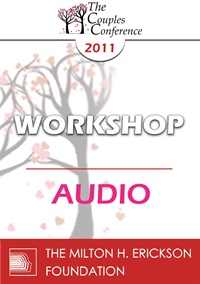
- Average Rating:
- Not yet rated
- Topic Areas:
- Workshops | Couples Therapy | IMAGO | Relationships | Mindfulness | Neurobiology
- Categories:
- Couples Conference | Couples Conference 2011
- Faculty:
- Jette Simon
- Duration:
- 1:33:01
- Format:
- Audio Only
- Original Program Date:
- Apr 01, 2011
- Short Description:
- Like walking a tightrope, working with couples in trouble requires focus and balance. Both partners want you to take their side, and, at times, it’s easy to get swallowed up by the intense emotionality of the sessions. So, how can you maintain a sense of balance and create an atmosphere in which healing can take place? In this workshop, you’ll learn how to use the principles of Imago Relationship Therapy to connect with the issues the couple brings to you and transform the emotional temperature of the session.
- Price:
- $15.00 - Base Price
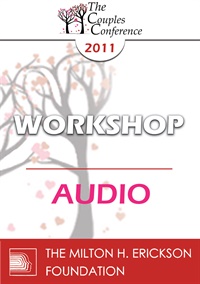
- Average Rating:
- Not yet rated
- Topic Areas:
- Couples Therapy | Workshops | Motivation | Neurobiology | Therapist Development
- Categories:
- Couples Conference | Couples Conference 2011
- Faculty:
- Jette Simon
- Duration:
- 1:41:46
- Format:
- Audio Only
- Original Program Date:
- Apr 01, 2011
- Short Description:
- Knowing how to elicit positive emotion even in couples steeped in intensely negative interactions is the key to providing the motivation for change. In this workshop, we’ll explore a variety of ways for creating “magical moments” in the therapy hour that offer a new template for couples, otherwise trapped in dysfunction, to allay repetitive cycles. You’ll learn how to use tools like focusing, sentence stems, doubling and directives to invite couples into new kinds of experience of connection. We’ll also examine the neurobiological principles that enable partners to expect and attract more positive experiences from each other.
- Price:
- $15.00 - Base Price
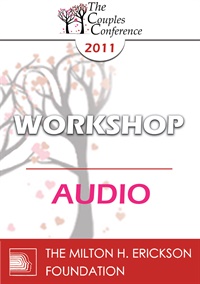
- Average Rating:
- Not yet rated
- Topic Areas:
- Workshops | Couples Therapy | Psychobiological Approach to Couples Therapy (PACT) | Neurobiology
- Categories:
- Couples Conference | Couples Conference 2011 | Pioneers in Couples and Family Therapy
- Faculty:
- Stan Tatkin, PsyD, MFT
- Duration:
- 1:56:30
- Format:
- Audio Only
- Original Program Date:
- Apr 03, 2011
- Short Description:
- This workshop presents a psychobiological approach to couples therapy, focusing on nonverbal communication, attachment styles, and arousal regulation. Techniques include frame-by-frame video analysis, movement-based assessments, and real-time biofeedback. Practical tools like camera setup, rolling chairs, and video playback are used to enhance therapist attunement, mutual regulation, and client insight—while underscoring ethical tech use and client privacy.
- Price:
- $15.00 - Base Price
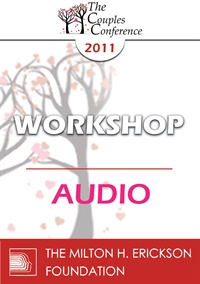
- Average Rating:
- Not yet rated
- Topic Areas:
- Couples Therapy | Workshops | Psychobiological Approach to Couples Therapy (PACT) | Neurobiology
- Categories:
- Couples Conference | Couples Conference 2011 | Pioneers in Couples and Family Therapy
- Faculty:
- Stan Tatkin, PsyD, MFT
- Duration:
- 2:05:40
- Format:
- Audio Only
- Original Program Date:
- Apr 03, 2011
- Short Description:
- This workshop explains and proves the meaning of the title, that romantic partners mostly do not know what they are doing or why. Tatkin explores a psychobiological approach to couples therapy, emphasizing attachment styles, neurobiology, and nonverbal communication. Topics include stress regulation via the amygdala and vagus nerve, the role of the right hemisphere in emotional processing, and techniques like voice modulation and play. Case examples illustrate how brief, affect-driven interventions help partners co-regulate, manage conflict, and improve relational dynamics.
- Price:
- $15.00 - Base Price
- Average Rating:
- Not yet rated
- Topic Areas:
- Keynotes | Couples Therapy | Love | Neurobiology | Neuroscience | Relationships
- Categories:
- Couples Conference | Couples Conference 2012
- Faculty:
- Helen E. Fisher, PhD
- Course Levels:
- Master Degree or Higher in Health-Related Field
- Duration:
- 58:07
- Format:
- Audio and Video
- Original Program Date:
- Apr 29, 2012
- Short Description:
- Anthropologist Helen Fisher uses her brain scanning studies (fMRI) of people happily in love, rejected in love and in love long-term to discuss the traits of romantic love, love-at-first-sight, and addiction to love. She focuses on her current research on 40,000 men and women to propose that four broad cognitive/behavioral personality trait constellations have evolved associated with the neural systems for dopamine, serotonin, testosterone and estrogen. Then she discusses her data on mate choice among 28,000 individuals to pro-pose why we are chemically drawn to one person rather than another.
- Price:
-
Sale is $29.00
price reduced from Base Price - $59.00
- Average Rating:
- Not yet rated
- Topic Areas:
- Workshops | Love | Couples Therapy | Neurobiology
- Categories:
- Couples Conference | Couples Conference 2012
- Faculty:
- Helen E. Fisher, PhD
- Course Levels:
- Master Degree or Higher in Health-Related Field
- Duration:
- 1:35:03
- Format:
- Audio and Video
- Original Program Date:
- Apr 29, 2012
- Short Description:
- In her lecture, Fisher discusses four biologically based styles of thinking and behaving and, using her data on mate choice among 28,000 individuals, shows why we are chemically drawn to one person rather than another. In this workshop Fisher goes deeper into these natural temperament constellations, and discusses how partners with very different (and similar) biological styles of thinking and behaving interact to create great joy, confusion and sorrow in their partnerships.
- Price:
-
Sale is $29.00
price reduced from Base Price - $59.00
Tags: Love Couples Therapy Neurobiology


